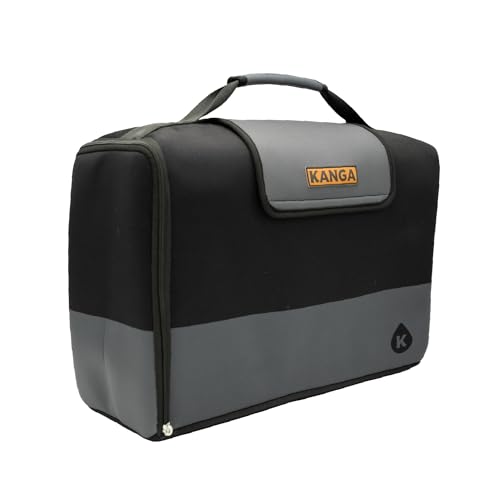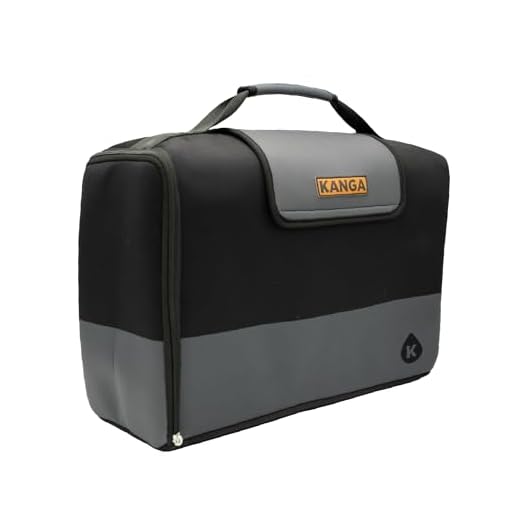

Yes, transporting a standard-sized box of alcoholic beverages via airline cargo is typically permitted, but there are specific regulations to keep in mind. Many airlines allow alcohol in checked baggage, provided it adheres to weight limits and packaging standards.
Always check the policies of the specific airline you are flying with, as rules regarding alcoholic beverages can vary. In many cases, the total volume of alcohol in your checked items should not exceed a certain threshold, usually around 5 liters for containers exceeding 24% alcohol by volume.
Ensure that the packaging is secure and can withstand transit. Using sturdy cardboard or foam inserts can help prevent breakage. Labeling your cargo with “fragile” can also be beneficial. Be prepared to declare the contents at customs upon arrival, as certain countries have strict import regulations concerning alcohol.
Transportation of Alcoholic Beverages in Checked Bags
Alcoholic drinks can be included in your checked bags on domestic flights, with regulations varying by airline and destination. Generally, most carriers allow passengers to pack certain amounts of fermented beverages, provided they meet specific criteria. Ensure that the total liquid volume does not exceed the airline’s restrictions, typically set at 5 liters per person for beverages with an alcohol content exceeding 24%.
Packaging Guidelines
Securely package each bottle or can to prevent breakage and leakage. Utilizing padded materials or specially designed holders can help mitigate damage during transit. Labeling the package may also be beneficial in case of inspection by airport security.
Caution with International Travel
For flights crossing international borders, familiarize yourself with local laws concerning alcohol possession. Some regions implement strict limits, while others may impose duties on imported beverages. Checking the customs regulations of your destination prior to departure can facilitate compliance and avoid potential fines or confiscation.
Airline Policies on Alcohol in Checked Bags
Most airlines allow passengers to transport alcoholic beverages within their registered baggage, adhering to specific guidelines. It is advisable to verify the regulations of the individual airline prior to travel, as rules regarding quantity, alcohol content, and packaging may differ significantly.
Alcohol Weight and Volume Limits
- The majority permit up to 5 liters of alcohol with an alcohol by volume (ABV) of 24% or less.
- For spirits exceeding 24% ABV, typically only a limited quantity (usually 1.5 liters) is allowed.
- Check with your chosen carrier to determine whether they impose additional restrictions on alcoholic beverages.
Packaging Requirements
- Alcoholic drinks should be securely packaged to prevent breakage during transport.
- Consider using padded bags or bubble wrap to minimize the risk of damage.
- It is often recommended to keep the original packaging intact to ensure compliance with regulations.
For international travel, customs regulations may impose additional limits on importing alcohol. Consult local laws at your destination to avoid potential issues upon arrival.
Packaging Tips for Transporting Alcohol Safely
Utilize sturdy, leak-proof containers designed for transporting liquid. Invest in special carriers or padded boxes that provide cushioning during travel. Ensure each bottle is wrapped in bubble wrap or foam to minimize movement and prevent breakage.
Label your packaging clearly to indicate contents. This aids in handling during security checks and sorting. To maintain temperature, consider using insulated bags or coolers, particularly when traveling to warmer climates.
Avoid Overpacking
Do not overload your containers. A packed box can increase the likelihood of damage. Leave some space to accommodate any shifting that may occur during travel. Ensure there’s enough padding to absorb impacts.
Consider Airline Regulations
Familiarize yourself with airline regulations regarding liquid transport. Each provider may have unique restrictions. Check guidelines carefully to ensure compliance. For a stress-free experience, you might also want to consider packing a best large windproof travel umbrella to protect you and your belongings during any unexpected weather.
Weight and Size Restrictions for Beer Cases

Maximum weight for checked items generally caps at 50 pounds (23 kilograms) per piece, with some airlines allowing up to 70 pounds (32 kilograms) for specific services. Exceeding these limits could result in additional fees or refusal of transport.
Measurements must comply with each airline’s dimensions policy, typically not exceeding 62 linear inches (158 centimeters) when adding length, width, and height. Verify specific requirements with your carrier before packing.
Packaging Requirements
Ensure sturdy packaging that can withstand pressure while maintaining structural integrity. Label your container clearly to indicate fragile contents.
Consider using padded dividers or foam inserts to minimize movement and breakage risk during transit.
Regulatory Considerations
Check local laws regarding the transportation of alcoholic beverages across borders, as restrictions may vary significantly. Ensure compliance to avoid complications at customs.
Review any quantity limits imposed by the destination jurisdiction to remain within legal allowances.
Customs Regulations for Bringing Alcohol Across Borders
When transporting alcoholic beverages internationally, it’s imperative to familiarize yourself with customs regulations specific to your destination. Many countries impose limitations on the amount of liquor allowed for personal use without incurring duties.
Typical allowances include:
| Country | Alcohol Allowance (Liters) |
|---|---|
| United States | 1 |
| Canada | 1.14 |
| United Kingdom | 4 |
| Australia | 2.25 |
Each traveler must declare items above the limit, potentially incurring taxes. Review specific limits on best backpack for lots of books that can carry your items efficiently.
Different countries apply various regulations regarding the age of the importer and packaging standards. For instance, some destinations might require products to remain sealed, while others may not permit items with high alcohol contents. Verify current rules and restrictions prior to travel.
Additionally, types of alcoholic beverages may be subject to different customs regulations. For example, you might inquire about whether light or heavier wines, like red wine, can affect health conditions such as can red wine cause acid reflux.
Consult official customs resources or legal guidelines for the most accurate and up-to-date information that applies to your specific situation.
Alternatives to Bringing Beer in Checked Luggage

Consider purchasing alcoholic beverages upon arrival at your destination. Many airports feature shops offering a variety of local options to sample without the hassle of transport restrictions.
Shipping Directly to Your Destination
Another effective method involves shipping your favorite brews ahead of your travel. Numerous courier services specialize in transporting alcohol, ensuring delivery right to your door. Check local regulations to comply with laws regarding shipment of alcoholic products.
Local Purchase Options
Exploring local breweries or liquor stores upon arrival can also yield exciting discoveries. Many regions boast unique offerings that provide a more authentic experience and eliminate the risks associated with air travel. Engaging with local producers may also uncover limited editions and local specialties not available elsewhere.
Using insulated bags or specialized containers can also serve as sturdy alternatives for takeaway items. If you opt for on-the-spot purchases, ensure you understand the limits and allowances for taking purchased products on your flight.








